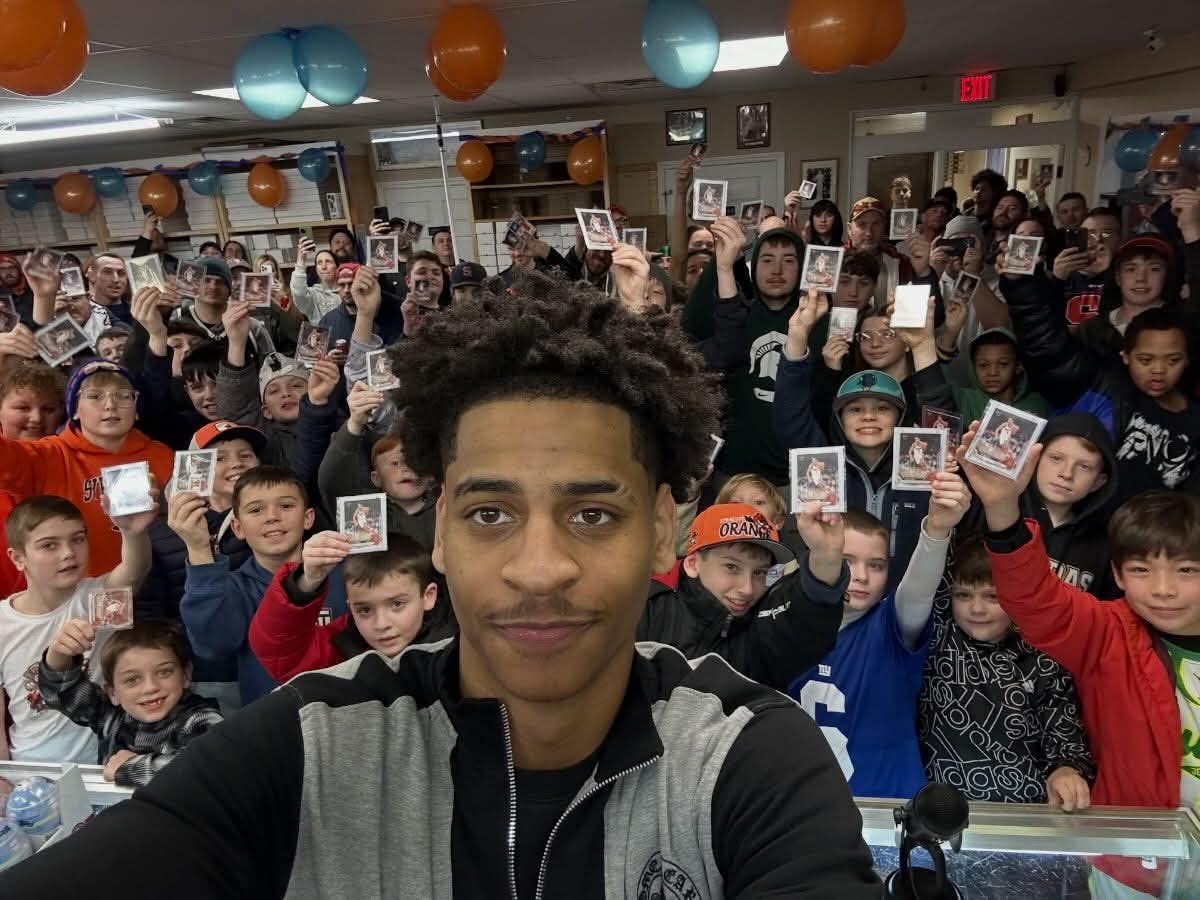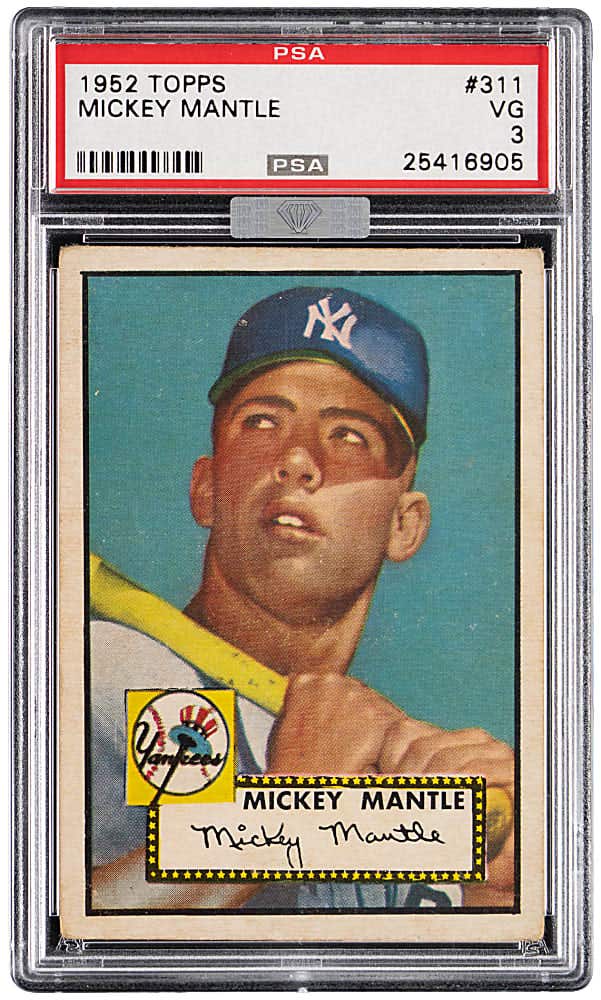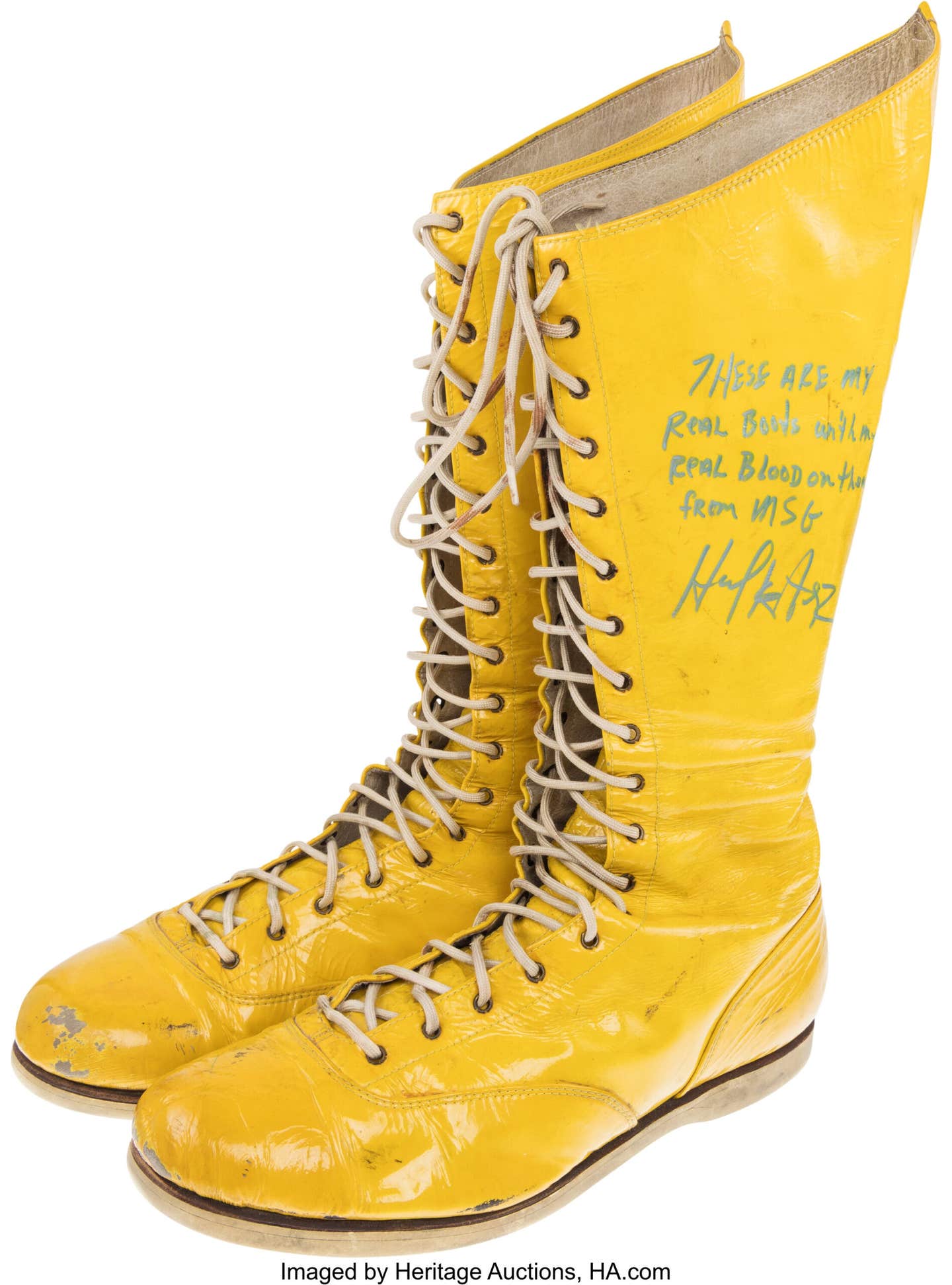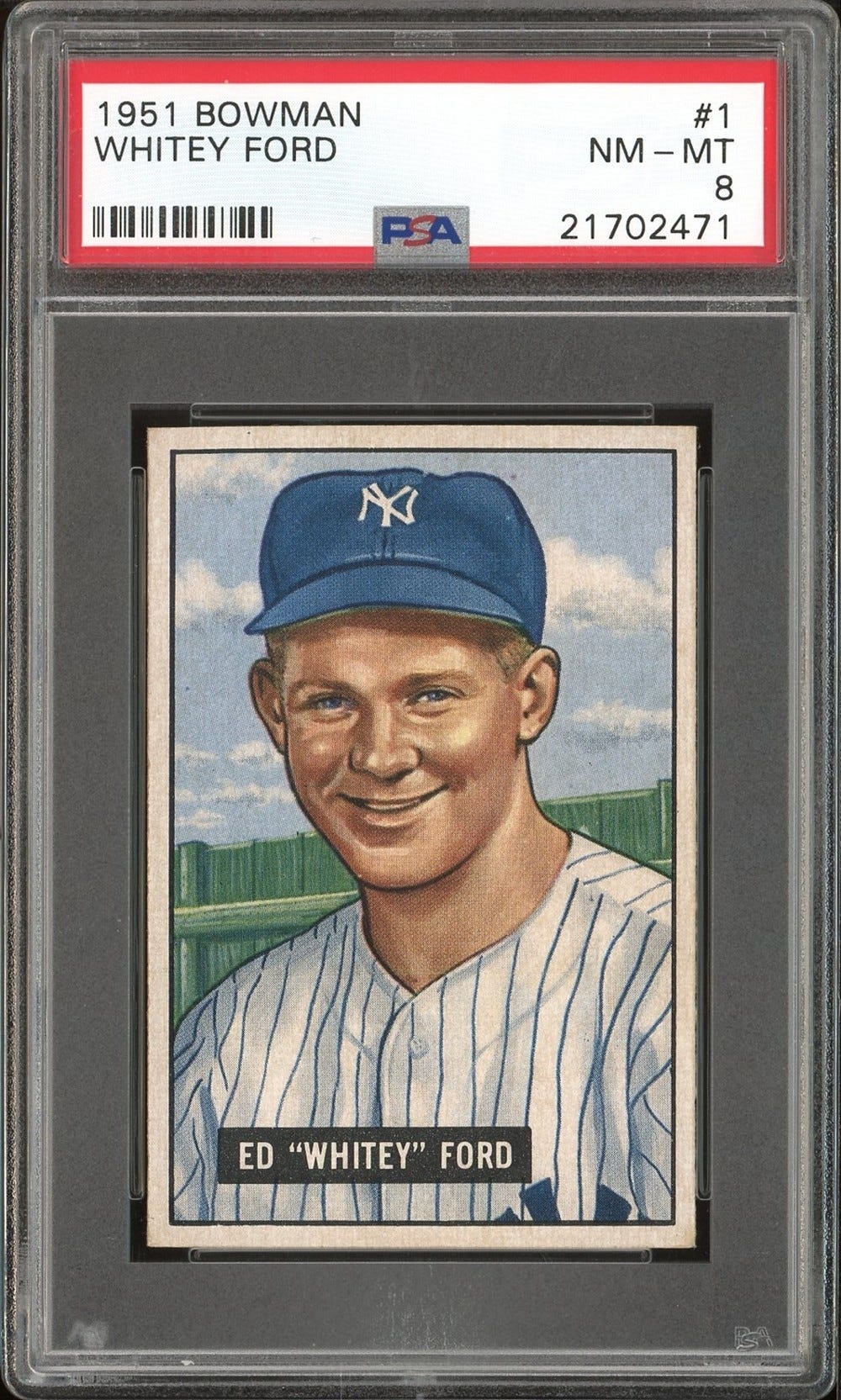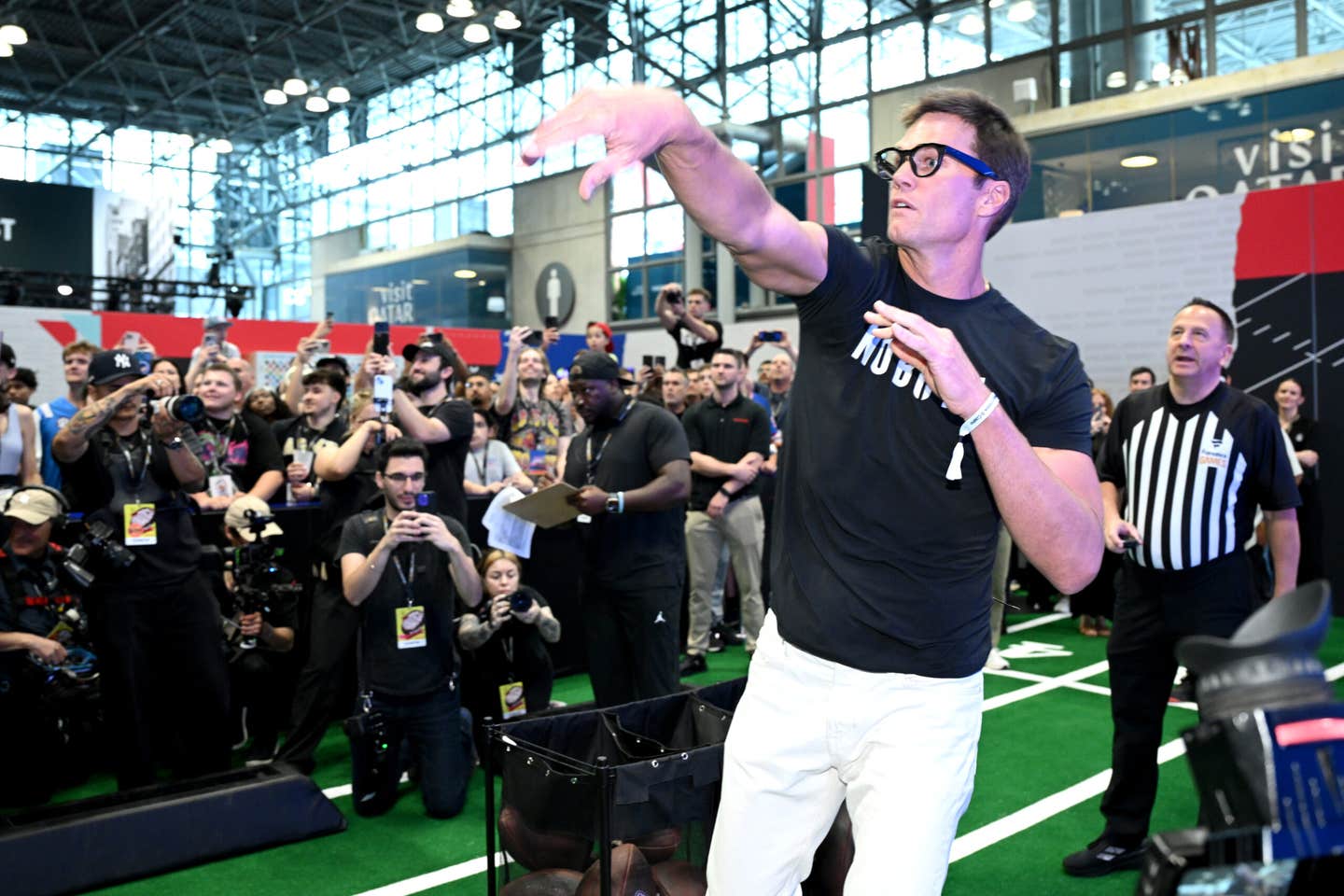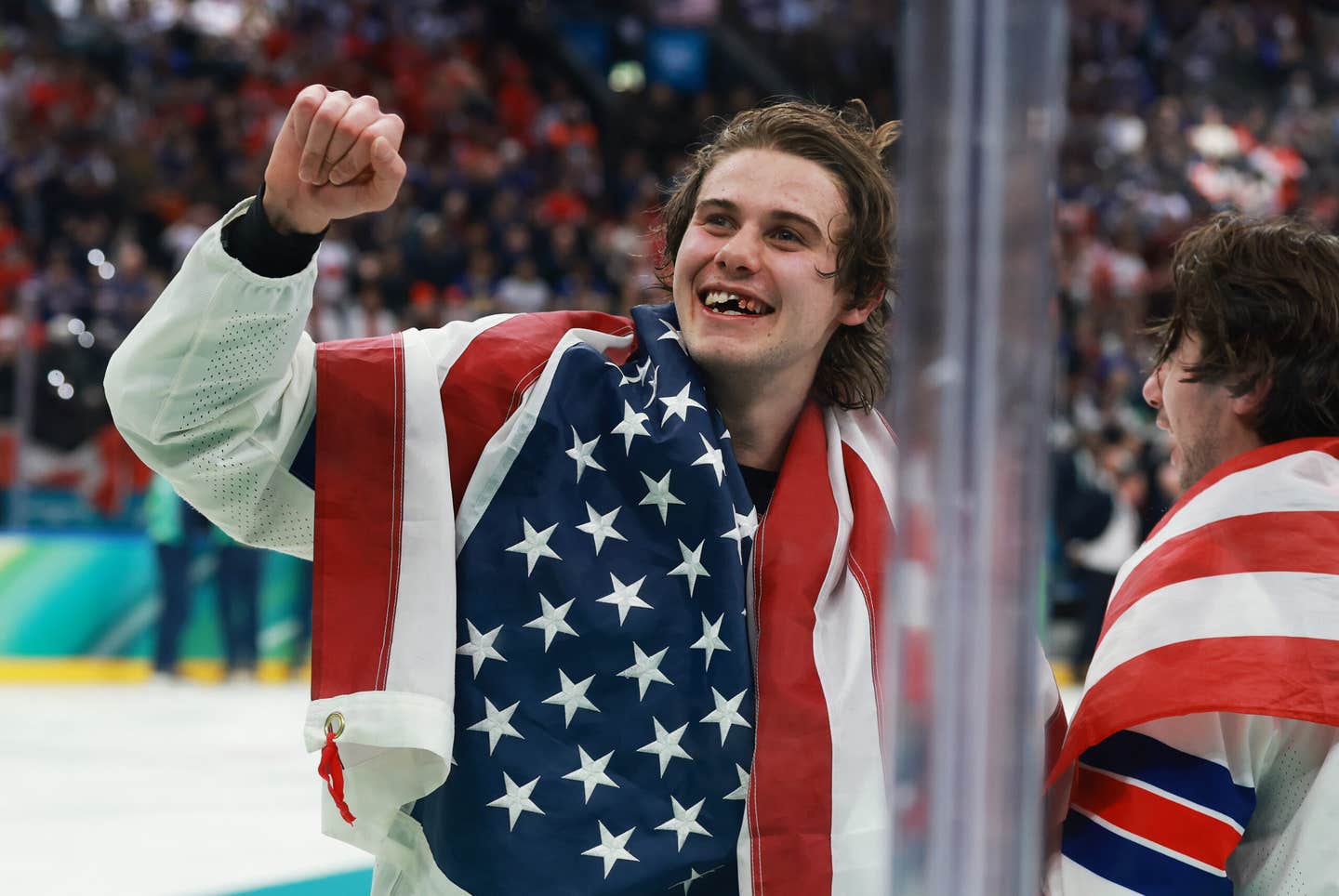News
Podcasts for sports card collectors are plentiful
Current estimates state that there are over 700,000 active podcasts with over 30 million episodes available to listen to. One allure of podcasts is the simple method of consumption. You can listen while working, while exercising, while sorting cards. And the topics are endless. So, it only makes sense that there are a host of sports card podcasts available to collectors as another method to get entertainment and information about the hobby we all love.
Another beauty of the podcast format is the control the host(s) has as to content. Some like Go GTS Live and About the Cards are live and have a video complement their information and discussion. Fat Packs and That Sports Card Show are primarily interview based. Sports Card Nation and Lemme Get That Podagraph are a combination of information, opinion and interviews. If box breaking is your thing, listen to Breaker Culture and Mojo Break The Hype. If you want to reminisce about packs from a previous time, then Wax Ecstatic is for you. There are podcasts about investing in sports cards like Sports Card Investor. If you want hot takes about all things in the hobby, then the current longest running hobby podcast, The Sports Card Show from the guys at Sports Card Radio, is your show. If you want a podcast about only a specific sport you collect, listen to Nascard Radio or Wax Museum: A Basketball Card Podcast. Even hobby icon, Dr. James Beckett, has his own podcast entitled Sports Card Insights with his long list of hobby experiences.
The vast selection of shows and access to information has caused the shows and more importantly, their hosts, to have a great influence on the hobby. At this year’s National in Chicago, many of the podcasters were on hand to host their shows live from The National and participated in the on-stage presentations throughout the week. In fact, Rob Bertrand and Ivan Lovegren of Go GTS Live anchored the stage for the event. Eric Norton of the Fat Packs, and Tim Shepler and Stephan Loeffler, two of the hosts of About the Cards, were part of a round table on the main stage about creating content. Drew Herndon of Lemme Get That Podagraph and John Newman of Sports Card Nation were joined by Stu Stone to discuss his film “Jack of All Trades” and break some packs. In addition, many of the podcasts hosted live episodes and interviewed each other. That is one of the many indications of the camaraderie and community among the sports card podcasters.
The intent of the interviews was to gain some insight into each podcaster’s collecting history, why they decided to foray into the podcasting world, what influence they provide with the podcast and how they see the hobby today and into the future.
Rob Bertrand – Go GTS Live – Bertrand is considered one of the “godfathers” of podcasting considering he has hosted multiple shows. After he came back into the hobby after a long hiatus (typical story for most of us), he started writing with the Card Corner Club website and doing set reviews. That led to eventually the Card Corner Club podcast, which he hosted with Doug Cataldo and Russ Cohen. The website merged with Cardboard Connection and the show was rebranded as Cardboard Connection Radio. The show ended up amassing over 550 episodes and included an innovation not seen regularly today, a call-in concept for collectors to call in with their questions. Bertrand was then hired by GTS, a major distributor in the hobby, and ultimately became their director of marketing. As he rose through the ranks, he wanted to do a show again but this time with a video format. “I envisioned the show changing from an audio format to a visual format. Our hobby is visual. It seemed plain and simple to me to talk about cards and show the cards,” said Bertrand. And so, Go GTS Live was born and airs on Thursday nights. The show covers the gamut of information for collectors including Hobby Happenings, which covers major news stories in the hobby; Hot in the Shop that focuses on the new releases; and Box Breaks, which features some of the newest releases in the hobby in all sports and non-sports, plus interviews and live reports from industry events. The Box Breaks is one of the most popular segments because the show gives away the top hits to viewers. “This is a labor of love, but it’s something I love to do. It’s been really rewarding the emails we get when people win prizes and the appreciation they share have outright brought me to tears,” said Bertrand. He finds it hard to believe that what he and the show are doing is influencing people.
But it is that sense of influence coming from a solid community within the podcasting world that is a common theme among all of the hosts. “It’s great to see because we all get along and we all bring a different element to it. That is what is really amazing because I don’t think the hobby was always like that,” said Bertrand. Although he works for a major distributor in the hobby and that can cause some limitations as to what is said on the show, Bertrand considers himself a collector first, thus his Twitter handle @VOTC (Voice of the Collector). He considers the hobby very strong these days. “The hobby will be fine regardless of what happens to the industry. There will always be people collecting pieces of cardboard.” Although he has some concern about the industry moving forward, he still sees its strength too. “The industry right now is hot but there is not enough product to go around. But to the manufacturer’s credit, they are not keeping the presses on. They are not watering down the hobby. They could easily cave to that, but nobody wants that.” Bertrand has accomplished and continues to accomplish a lot. Not bad for a kid who started with a George Brett rookie card he found at a garage sale in 1976.
Ivan Lovegren – Go GTS Live – Lovegren is the other part of the Go GTS Live hosting duo. He grew up a Midwesterner (like Bertrand) in Omaha but has spent many years in Los Angeles. He started collecting when he was 3 or 4 years old with his first pack of cards. That pack featured an Andre Dawson All-Star card and from that point on, the Chicago Cubs became his team. He has a similar collecting story as he returned to the hobby around 2009 after he had purchased some random boxes. As he and his wife moved into a new apartment about six years ago, he found the need to use an empty cabinet to organize his small collection of cards. As he looked in the boxes that he had already opened but left the cards in the packs, he noticed he had two Mark Sanchez rookie cards. What caught his eye is that both cards had the same number but had different pictures. This piqued his curiosity, so he paid to subscribe to the Beckett Online Price Guide and found out about variations. One of his Sanchez rookies had a value of $60. He put it on eBay and sold it for $35 and has been “hooked ever since.” It is this curiosity and his ability to ask the questions many are thinking that makes his online presence so successful. Follow him on Twitter @WatchTheBreaks to see eBay listings that require review or for questions posed to the collecting masses. “I am into the analytics and I am fascinated by the aspect of it. I do tailor my Twitter feed to what I know people will engage with. I want to create a fun place for people to connect,” said Lovegren.
Lovegren’s original goal for moving to L.A. was to be in entertainment. “I had built up a personality for a while around collecting. I did a web series about collecting that was a comedy, mostly fiction, but based on facts about my collect fails. And they (GTS) were looking to create something media-wise to represent and create an opportunity that I think is still pretty unique.” He liked the fact GTS said that their customers are the breakers, the hobby shop, the local LCS. “GTS wanted to support the hobby shops a little better by providing more product information. Our show is not always the most dynamic cutthroat show because one of our roles is to provide product information. With that, collectors have a picture in advance,” he said. Lovegren is surprised at the influence their show has. “It still blows my mind that people watch the show and that they have the fun. I’m glad they do and that’s my goal, but it still blows my mind.”
The fact that GTS is tied to the show offers some unique opportunities that other shows do not have. “We are definitely blessed with GTS’ access because we get to do things from summits, from rookie events, from All-Star Game events, so we get a lot of unique content because of that.” But with all of that access, what many may not know, is that there was over five months of development before the show went live in the form it is in today. I would say that they got any kinks out and put out a top-notch show for collectors to enjoy.
Eric Norton – Fat Packs – A true “right place at the right time” story is the best way to describe how Eric Norton ended up at Beckett Media and, thus, the Fat Packs podcast. Norton who had finished his time in the U.S. Army (thank you for your service, Eric) was in the Seattle area working for both a trucking company and the Seattle Mariners. It was there he found his one collecting passion – Kyle Seager cards. He moved back to Texas with the trucking company to be closer to family and found himself one day in his LCS. He overheard someone stating that they worked for Beckett, and Norton asked the man for a business card and then offered to send them his resume. Two weeks later, he got a call for an interview and then did not hear anything for many months. And then, “straight out of the blue,” he was offered the job as the coin analyst. “I knew nothing about coins and kind of lied my way into it, but I was hoping and praying that it would lead to something else,” said Norton. It did as he became the hockey analyst, a position he holds today. “I’m able to do a job that I love. It can be difficult sometimes looking at spreadsheets and trying to find the right price for a card by scanning eBay listings and auction houses, everything is so fluid now,” he said.
Eric asked while at Beckett if he could join the existing podcast that provided sports card information. Soon after he joined, the other co-host decided to switch jobs within Beckett and left Norton in charge of the podcast. He brought on a co-host, Paul Wirth, and rebranded the podcast as the Fat Packs. Wirth has since moved on from Beckett and Norton has continued with his passion for what has become almost 350 episodes. “I took over the podcast fulltime. I dreamed of being in radio since I was 15 years old. I was finally given the reins to something and take it and go with it.” Not only is he responsible for hockey pricing, he also helps manage Beckett Marketplace, but the podcast is his “labor of love” and he “loves getting behind the mic.” Many of the podcasts provide lots of information and the Fat Packs podcast does do that to an extent as an extension of Beckett Media, but the true basis of the show is interviews. “I feel like I am able to sit down with anybody and carry a conversation,” said Norton. And Norton’s passion and focus has paid off as the show that once averaged 100 downloads a week now gets 1,500-2,000 weekly.
The influence the podcasting world has is evident to Norton, especially in sports cards. But he acknowledges the differences each show has in getting their messages out to collectors. “What I like about the hobby is that there are nine or 10 different shows, maybe 12, that we’re all different, but we are trying to get the same thing out. Aside from maybe one or two shows, it is a pretty positive place. And I think that is important with a lot of negativity that is going on. Having a positive push is more important. Some of the negative stuff (in the hobby) needs to be brought to light, but it’s about the manner and tact which it is done.”
Norton sees his show adjusting forward as the hobby does. He believes video will be a bigger component of his show but that it will stay interview based. “I have to make more time to make content that is consistent with the way it is being consumed today. It is easier to catch your eye with video than just to say I interviewed someone. We all will have to adjust to what people want.”
Tim Shepler – About the Cards – The podcast that is “by collectors, for collectors,”About the Cards, which airs on Wednesday nights, is unique since it has three hosts. Known on Twitter as @BigShep79, Shepler was a big fan of the aforementioned Cardboard Connection Radio. He liked it because of some particular qualities: openness, honesty and informational. But he felt some podcasts had relationships with the brands in the hobby and therefore, could not be as critical. He decided a little over a year ago to talk to his friend, Ben Wilson, about starting a podcast to continue their conversation about what they loved: collecting sports cards. He told him, “Hey, we can do something.” Ben had connections with Stephan Loeffler and the podcast was born. Shepler said he bought a camera and a microphone. “We will do an episode and if no one likes it, then we will do it for ourselves for a while.” They created episode 0 and sent it to people that they knew for review. And everyone came back and said, “Dude, this is good.” The show gained in popularity again for the same qualities they wanted: openness and honesty. Shepler said that the message is about being collectors. “We are collectors and that’s where we come from. Like I sell and stuff, but hands down the first thing I am is an everyday collector. And Steph’s the same way and Ben’s the same way. We don’t have any true skin in the game.” That formula has worked as they have reached now over 60 episodes.
The podcast has a broad spectrum of topics but sticks to one true formula: conversation. Whether the discussion is about the current week’s Topps Living Set release, the release of new products or the latest NFL rookie class, you can bet that if discussion is to be had, it will be on the docket. The show is also timely as there is always some banter about what positive or negative issues that have been brought up by the online collecting community. This quest for interaction led the podcast to venture from audio to YouTube to Facebook and any other platform they can get the word out. This enables the viewer to see the hosts but also interact with them via live chat and get immediate responses.
With the conversation, the hosts can also talk about their personal collecting journey. Shepler started in 1987, left the hobby and then came back in full force. He is a big Royals collector but also collects San Francisco Giants and enjoys building sets from all the sports. He recently attended his first National, and he and Ben are also setting up as dealers at local card shows.
Shepler is happy how the podcast has turned out but also is in awe of the response it has gotten from viewers/listeners. “It’s fun but at the same time, it is very humbling. I love doing it every Wednesday night, putting it together with these guys. You see it on YouTube and it gets a couple hundred views and you look at it and say, okay, people don’t have better things to do?”
Stephan Loeffler – About the Cards – Making this podcast a true cross-country connection podcast is Loeffler. He resides in the Dallas area and works for COMC while Shepler and Wilson both live in California. Loeffler was brought into the fold based on his relationship with Wilson and his mountains of knowledge about the hobby. Anytime there is a question about a card – past or present – Loeffler knows all about it and where to find the information to show the viewers. Known on Twitter as @JunkWaxTwins, he has a quest to collect all things Twins.
As a person in the business, Loeffler is not afraid to be critical on the show about something that requires questioning the industry or to pay a compliment if that is appropriate. “I will say (to a manufacturer) on the day of release, where’s the checklist? That’s not right. Somebody wants to go out and buy the product and they don’t know who is in it. But at the same time, I can go back and say you guys took what was wrong with this year and you fixed it for the next year. So, it can be complicating or frustrating but at the same time, I can say congrats for a great product.”
Ben Wilson – About the Cards – Wilson may be an A’s super-collector, but his most valued card actually is from another team – 1986 Topps Eric Davis. He was at a cousin’s birthday party and everyone got packs of baseball cards (those were good times). He opened them up and then later checked the price guide and found it was worth $1.25 and his description is “I tell you I was rich.” Fast forward and he came back to the hobby after a 20-year hiatus and found himself trying to collect baseball and football sets. However, that posed a challenge. “I am not knowing that sets are coming out regularly. There were insert set after insert set and I wanted them all. I wasn’t going to be able to complete the sets with the frequency and cost of when they were coming out. What made me happy as a collector was I wanted A’s cards and I wanted all of them,” said Wilson. He references his collection regularly on the show.
Wilson, like Shepler, was a big fan of the old Cardboard Connection Radio show and he had a similar feeling that they could put together a show themselves. “The irony is that Tim and I live a half-hour apart and we actually initially met in (Cardboard Connection Radio’s) chat room before meeting at an LCS here in town. Our friendship developed on Twitter more than it did in person. We think it is indicative now of technology.”
He is active on Twitter as @ourtradingcards, but the title is Sports Antagonist/Card Economist. “I like to be combative on Twitter. I have been that way since birth, that is my personality,” said Wilson. But his love for a debate matches his pride of how the podcast has developed over time. “Yes, (the show) was designed with the idea that we need to speak for the collector, but it has also developed into more than that as we have got more interaction through social media and having guests on there. We never thought the show would get where it is. Our first seven YouTube subscribers were our personal accounts and our wives.”
Drew Herndon – Lemme Get That Podagraph – At this year’s National, Drew had a heavy heart. That is because his podcasting partner, Stuart Payne, was there in spirit as Payne had passed away from cancer in April. “It is definitely tough, but he made a very, very strong impact on this hobby in a very short time. Anything I can do to help commemorate that, that is my honor,” he said.
Now pushing 75 episodes, the show is not only known for the typical card information and interview guests but also Drew’s takes on what is going on in the hobby, positive or negative. It is not out of the realm of possibility to hear Drew questioning autograph cards or celebrating a new release and its parallels. He doesn’t lack for opinion. “That’s the biggest thing. There is all this information out there and people need to use it. That’s where with our show, I try to help people as much as I can. Give people that information whether it be an educated decision on what they are buying, what company they choose to use or what service they choose to go with. Just be informed.” It is that desire for information that drives Drew to be active and seek it from Facebook Groups and other sources.
The drive for information is common among the podcasters but also the camaraderie. And Herndon said he and Stu felt that from day one when they started. “As soon as we started our show, Eric Norton from Fat Packs reached out to me before we put out Episode 2 welcoming me. It’s like a brotherhood. We are all really close. We all love to come on each other’s shows. We listen to each other’s shows. It’s a really good group of people and it’s an honor to be a part of it.”
John Newman – Sports Card Nation – The enduring theme of community is what John Newman has found in podcasting since he started last November with the Sports Card Nation podcast. “It’s a good sense of community. We have been on each other’s shows for the most part. Other podcasters share tips. I have even shared a guest. That is not the case in a lot of industries.”
After appearing on a friend’s podcast in his hometown of Syracuse, Newman decided to jump into the podcasting pool himself. “I said you can do it. My work schedule changed and I said maybe that’s the sign (to start). I went in there really with no expectation. I really did not want to set expectations that were unreasonable.”
Newman brings a specific perspective to the podcast as he has both owned a card shop and has been a show dealer. He started in the shop at 14 and by age 20, he was a partner. Eventually, he sold his partnership and did card shows for many years.
The podcast brings a combination of information, interviews, sports talk and opinions. This mix helps Newman reach multiple types of listeners and for that, he is very appreciative. “If you would have told me eight or nine months ago where I would be now, I would have said you were crazy. I’m humble and say it on the show and thank everybody. There’s a lot of other podcasts and I’m appreciative of my listeners,” he said.
Dr. James Beckett – Sports Card Insights – This year, the sports card podcasting world was joined by a true icon whose name has been synonymous with pricing. Dr. Beckett decided to get in but wanted to ensure that his podcast was in a shorter format. “It’s 14 or 15 minutes and you can play it at one-and-a-half times and easily understand that it can be 10 minutes.” He also knew a key is how each episode is titled. “And they’re titled in such a way that if it sounds interesting, do it. If it doesn’t, don’t. I realize I’m going to have some episodes with individuals people haven’t heard of or issues or sets or players or situations they’re just not interested in and I am fine with that.”
After listening to many of the podcasts that are out there, Beckett decided he had something a little different to offer. “Nobody was doing exactly what I thought about. And I thought, I’ve got some knowledge. I’ve got some experience. I’ve got some relationships. Why not? I’m not going to sit down and write. I don’t think I’m a blogger.”
The shorter format enables Beckett to put out the podcast daily as opposed to all the other shows, which come out at a minimum weekly. “If I am really going to do what – five days a week. In four years, you’ve got a thousand episodes. I am not going to run out. There are more than enough players. There are more than enough card sets. There are different issues and probably that many interesting people to interview as well. I think people can tolerate it if it’s 15 minutes,” he said.
What makes Beckett’s podcast unique is he can give his opinion now that he is retired, something he wasn’t always able to do before. “A lot of the pricing stuff, that is kind of what I am known for. So, I’m a free agent now. I can say you need to buy this now,v which I couldn’t say before when I was in the hot seat. It wouldn’t have been appropriate or fair, a conflict of interest. I had personal opinions I needed to keep to myself. Now, this is my personal opinion. I’m a private citizen.”
Ty Wilson – Breaker Culture Weekly – Group breaking – whether pack breaks, box breaks, case breaks – is an important component of the sports cards industry. Ty Wilson at Breaker Culture Weekly realized that and saw an opportunity to support breakers both with a website and podcast. The website came first and was developed with the concept to be the “Yelp for breakers.” The podcast soon followed. “I’m going to focus on highlighting the positive things that people are doing in breaking. Let’s start interviewing guys and let’s start helping people understand about group breaking, the ins-and-outs, the analytics,” said Wilson. The analytics is Wilson’s forte as he posts those on the website such as pricing ladders about products and then references those on the podcasts.
The podcast became that extension of the website. “How can I start to widen the audience? What can I do that’s a little bit different? I’m not going to compete with the Fat Packs, nor would I want to. I have my own style so I thought I could latch on to the breakers. It became if I want to build trust, I have to show the breakers that I care about them. And that was my intent going into it,” he said.
Wilson wants to use the podcast to tell the story about breakers and provide insight into what it takes to be a breaker in today’s hobby. That means describing the good and the bad. “How can I give some tips that I have learned from some of the other breakers? I think the biggest misunderstanding is how much work it takes. All you have to do is listen to any of the big guys on the podcast. One-hundred-hour work weeks are normal. Plus, product procurement is tough and the product margins are super thin. That’s what I tell breakers when you do this right now and you’re successful. You’re going to get jaded because this is literally the heyday of the market. Nothing compares with this year.”
Doug Caskey & Dan Anderson - Mojo Break The Hype – As popular as breaking is, like I described before, it only makes sense for one of the top breakers to support their business with a podcast. In fact, Doug and Dan that helm Mojo Break were nominated again as the Top Breaker at the Industry Summit Awards. The guys thought of the podcast to have a primary goal: extend their brand. “It was always as revenue to promote the brand. We were doing YouTube ads and stuff like that, but we said, let’s just do a podcast. You’re a performer when you’re doing breaks, so we felt like you’re performing when you’re doing a podcast,” said Caskey.
Anderson feels a key to their success is consistency. “If you have it on a certain day (Wednesdays to coincide with new releases), people are going to know when it is going to drop. That was an issue when we first started. We would do a podcast and then we wouldn’t do another one for like six weeks. And then we would do another one two weeks after that. It was very sporadic. I think having a schedule and having a consistent schedule is key.”
They both feel the influence of breaking on the hobby is “massive.” “I think it helps everybody. If you live next to a shop, you can watch a break and say man, I’ve got to go down to the shop and get that,” said Caskey. Anderson feels those that get into breaks can collect what they want. “You can focus your collection. If you’re a team collector of say the Giants, you can go to all of the group breaks and buy all of the Giants. Or if there is a certain prospect you’re looking forward to, you can just buy that prospect’s team. I think it helps you focus on what you’re specifically collecting.” These guys go all out, thus the name: Mojo.
Matt Sammon – Wax Ecstatic – If you want to reminisce on a podcast and relive some nostalgia, then check out Wax Ecstatic. Host Matt Sammon makes a point to hit up his local card show and find some packs from the “junk wax” era or even sometimes before. He opens the packs on YouTube and then describes some of the players and their hidden stories from some of the cards that came out of those packs. To fit that era, the Twitter handle for the show is @WaxandGumStains.
The podcast has now been going strong for three years, but, according to Sammon, it had very humble beginnings. “Like many great ideas I come with, I came up with a podcast because I was bored. I was kind of organizing my collection, which at the time was mostly cards from the mid-‘80s and back. Some of the cards looked kind of funny. Some of the pictures are not that good and some of the names like Shooty Babbitt and Mickey Klutts made me chuckle. It just came up as if I could pull a card from each of these sets that I have and talk about the card and talk about the set, maybe make a little fun of the player and that is how it started.”
He feels the podcast scratches two itches that collectors have: first, nostalgia. “Every generation wants to throw it back 20 years and go back to the simpler times when you are a kid. Right now, we are in a big age of ‘90s nostalgia. The people who were collecting at that time want to be collecting again.” The other need is interesting stories. “You know the stories of Pete Rose, Nolan Ryan and Mike Schmidt. There are interesting stories about some lesser known players. It is just so odd that sometimes the common card presents the most uncommon stories and the most entertaining ones,” he said.
Vince Autullo – That Sports Card Show – It is ironic that Vince Autullo’s podcast is about sports cards because his collecting history went in a different direction. “What got me started were movie and TV show cards like ‘Star Wars,’ KISS and ‘Grease.’ One of the cool things is you would look at the cards and they would have scenes from the movie and if you read the back, you would get a description of the scene.”
After over 50 episodes, the podcast has stuck to its original format: “a talk show.” Autullo builds every episode around an interview with a guest reaching all facets of the hobby. The first episode did have some information, but Autullo realized quickly that the interview made the show and that would be the format going forward. “We liked the interview on the first podcast because it was more like a talk show. It was a conversation that surrounded the world of cards and about cards. And that is how we decided the format. We look to have a unique story to tell. I like it where we have someone every week that you have no idea where we are coming from. I want it to be the most diverse and eclectic group of guests I can have.”
That interesting group of guests has covered the gamut. It has not just been sports related but any that could have a relation to the hobby. That would include hobby legend Rich Klein, celebrity chef Graham Eliot, artist Mike James, actor Colby Boothman, musician “Slim” Jim Phantom and comedian Keith Lyle. Eclectic group indeed.
The sports card podcast world is alive and thriving as new shows come on board every day. It is an enriching community that is not only informing the collector base but also entertaining the masses. That influence can be felt in all corners and the shows are becoming a go-to source for whatever is needed to support our hobby.



